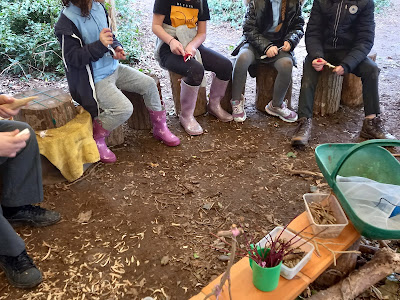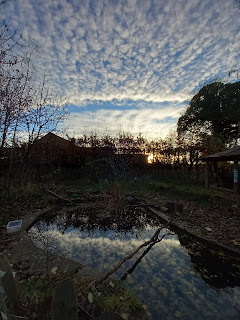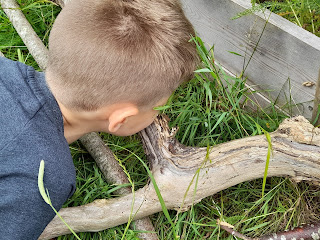Marching on
The two unavoidable topics at the moment are how much 'education' children have missed, and the effect lockdown & C19 have had on their mental health.
The need to allow for a 'carefree' summer of play was addressed in The Guardian :
“As part of a wider recovery process, children should be encouraged and supported to spend time outdoors, playing with other children and being physically active"
“It is now more important than ever that the government stands by its commitment to children’s mental health. While there is an understandable focus on children catching up academically, we know that children cannot learn effectively when they are struggling emotionally.”
The Center on the Developing Child, at Harvard University published a paper which concluded that most young children are motivated intrinsically by exploration, active involvement in play, and achieving mastery or success in a task. Heading back into education with a 'recovery' curriculum is going to require a lot of motivation!
"This kind of approach motivation is important for learning and development because it leads to intense engagement in a task and eventual mastery, which is associated with pride and satisfaction."(download the PDF from here)
So now really is the time that schools need to introduce as much outdoor learning as they can. Not just Forest School and recreation outside, but more lessons outside. More hands on, investigative, explorational, learning is what hooks children into a topic. However the pressure of 'catching up' may make a much more theoretical approach to 'lost learning' to route schools lean towards because you can pack more in...in theory!
If the children are not engaged there is little point in any curriculum. Learning Outdoors and making lessons as practical as possible isn't as daunting as it initially sounds, and many teachers are more than ready to head outside of their classroom. Those who aren't need support and information. Very little is taught at Teacher Training about Outdoor Learning, and having already spent a year switching between delivering remote learning, and adapting to the restrictions within school buildings, another change to work life is not easy.
In his article online at Outlearn Joe Bogumsky fights the case for daily outdoor learning and recommends schools:
- integrating outdoor learning within the curriculum (plan/expected/natural)
- cultural change within the school (cont. expressing the importance of OL)
- personal development - review cycle (what is and isn't working)
- training of staff (to help with planning and delivery)
Not every school has access to Forest School. Not only do many have no space in which to put one if they hire a FSL, but the logistics of moving classes to an appropriate site can make cost prohibitive or actual travel impossible. But some outdoor provision is always possible.
The EYFS generally has this down to a fine art, integrating indoor and outdoor learning and making the most of whatever space they have available. When the children in your class/setting cannot read instructions, or write lots of answers, you also become very creative in how to educate children by tapping into their curiosity and allowing for inquiring, exploring, inventing, communicating, imagining, improvising, constructing, and accomplishing tasks in a selection of ways. It is an informative, practical, valuable, and effective way for anyone to analyse, research, envision, improve, and understand the world. In Early Years we just call it 'play'! Due to successive Governments and ever-changing curriculums, it usually peters out as children move through Key Stage 1.
Some schools have fought to keep a good transition, others implement an enviable continuous provision that extends into KS2. Sadly once beyond Primary School provision for Forest Schools etc is rare.
Forest Schools will remain child centred and will act as therapy for many. Whether they are attached to a school or an independently run facility. Forest School Leaders are aware of the task ahead. Now may be the time for schools to make links with freelance FSL, to see what provision is out there, to build a plan to get some sort of Outdoor Learning into their school as soon as it is safe to do so.
We've had pretty much 12 months of disruption to life on earth, what is put in place now for schools to aid the recovery from that chaos will be needed for years not months or weeks.
If done properly that success will not be something to discard later. Improving wellbeing, engaging children, and strengthening resilience is something to invest in forever.










Comments
Post a Comment